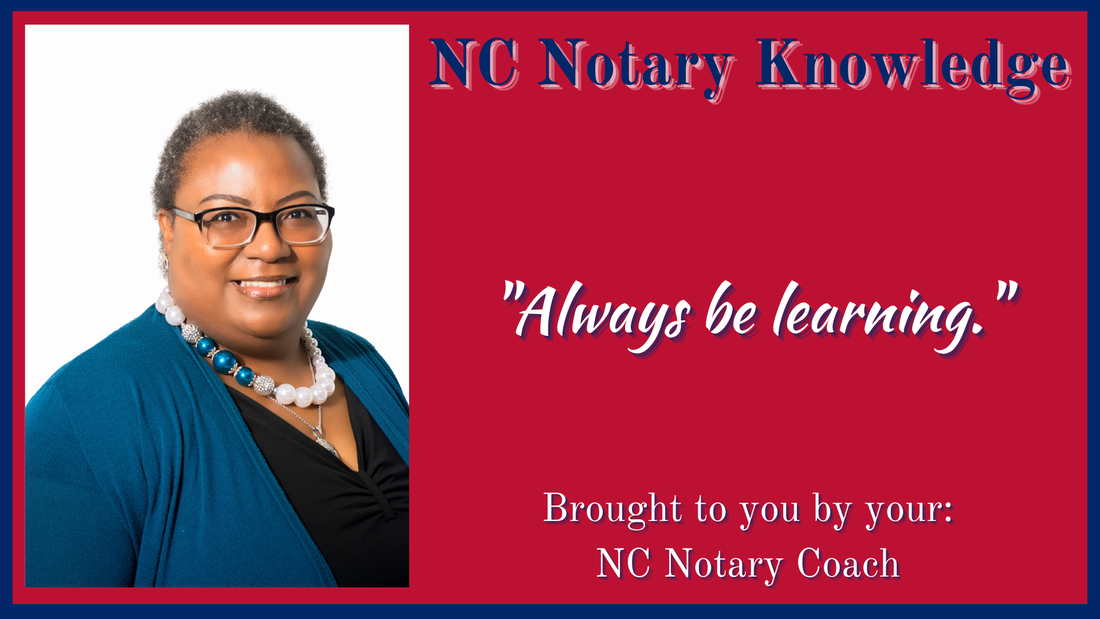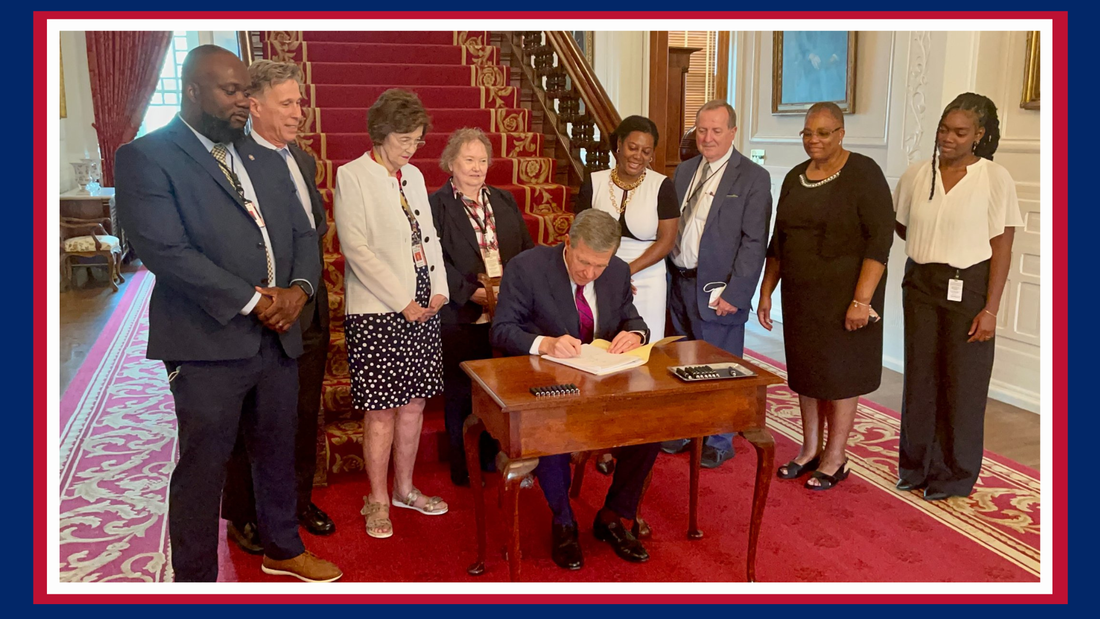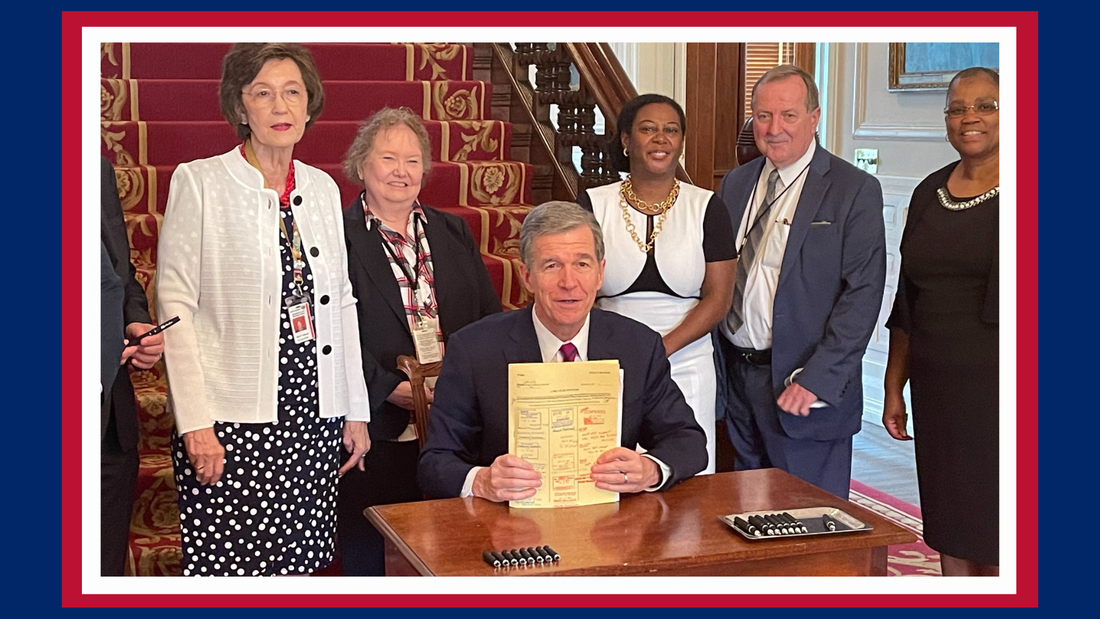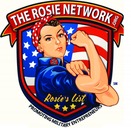"Staying well informed and up-to-date on the latest news is important as we educate ourselves and the public. If we don't know what is going on, how can we expect our customers to know when it comes to notary news? Let's be the best Notaries Public for the State of North Carolina and help our communities in all 100 counties!!"
|
Today, Governor Cooper signed House Bill 776 that permanently codifies remote online notarization and restores emergency video notarization. Remote Online Notarization (“RON”) will become effective on July 1, 2023, and Emergency Video Notarization (“EVN”) is effective immediately.
Electronic notarization has been available in North Carolina since 2005 under the Electronic Notary Act. Under this act, regular notaries who satisfy the training and testing requirements of G.S. 10B-107 can register with the NC Secretary of State’s office as “electronic notaries.” Electronic notaries have the ability to perform certain notarial acts electronically; however, electronic notarization requires that the signer of the document be in the physical presence of the notary. The physical presence requirement became problematic during the height of the COVID-19 pandemic. North Carolina enacted a temporary EVN law in 2020 to allow all notaries (including regular notaries and electronic notaries) to perform acknowledgments and oaths/affirmations over video conference technology. EVN expired on December 31, 2021; however, House Bill 776 restored EVN such that it may resume, effective immediately, and ratified any EVN occurring after December 31, 2021 and before July 8, 2022. In addition, House Bill 776 adds a new category of notary – the remote electronic notary. A remote electronic notary can perform any of the notarial acts that an electronic notary can perform (e.g., acknowledgments, jurats, verifications or proofs, and oaths or affirmations), but does not have to be in the physical presence of the signer. RONs may only be conducted using remote communication technology platforms that are secure, capable of recording and geolocation, and licensed by the NC Secretary of State. Until the permanent RON becomes effective, EVN will continue to be available. House Bill 776 makes a few tweaks to the EVN law (codified at G.S. 10B-25) but for the most part leaves the rules enacted in 2020 as they are. To summarize the EVN law:
Licensing of communication technology platforms and other specific rules related to RON are being developed by the NC Secretary of State and will be available in advance of the July 2023 effective date. The new law also immediately updates the fees that notaries can charge. For acknowledgments, jurats, verifications or proofs, the fee increased from $5 to $10 per principal signature. For oaths or affirmations without a signature, the fee also increased from $5 to $10 per person, except for an oath or affirmation administered to a credible witness to vouch for the identity for a principal or witness. The fee for electronic notarization is $15, and the fee for remote notarization will be $25 when RON becomes effective in July 2023
2 Comments
|
Archives
July 2022
Categories |
5-STAR RATINGS & REVIEWS
"Providing quality and personal service for your legal needs."
Hours - Mobile Services Provided:Sun - Sat (Appointments Scheduled a day in advance) with exceptions of same day appointments
FEES to the General Public:
|
Customers and Businesses Dial:
(704) 665-0469 North Carolina Notaries Dial: (984) 377-2694 |
DISCLAIMER: I am not an attorney licensed to practice law in the state of North Carolina, and I may not give legal advice or accept fees for legal advice. I do share information based on previous experiences and educational information learned through my continuous training.
© 2015 - 2024 All Rights Reserved Belinda Baker Bennett, LLC dba NC Notary Signing Services



 RSS Feed
RSS Feed
